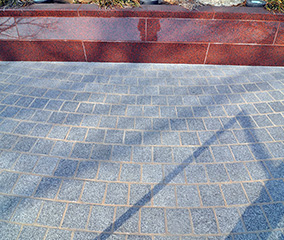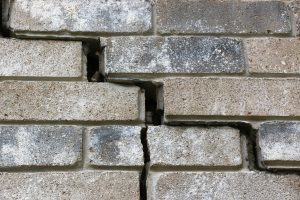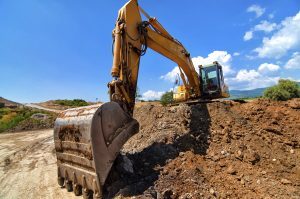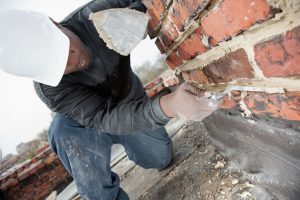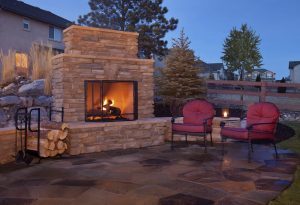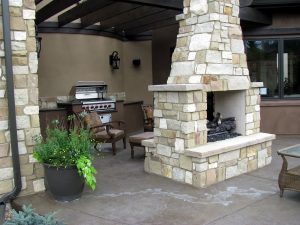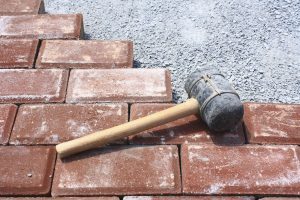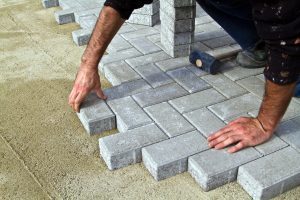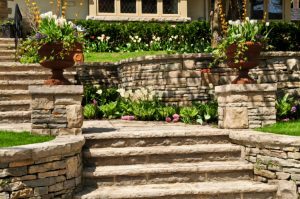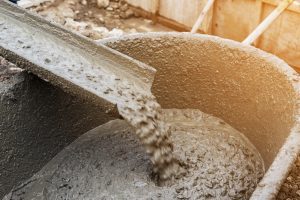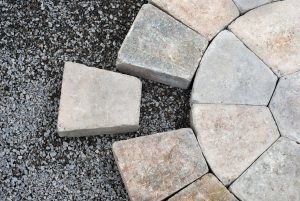
Stone is one of the more expensive masonry materials, known for its timeless look and durability!
Masonry is the act of building and constructing with the use of stone materials. These masonry materials serve as the backbone of many crucial constructions such as buildings, walls, and various pieces of hardscaping. What masonry materials are the most commonly used and best ones to use for masonry projects? Here are four of the most common types of masonry materials.
Stone
If you are looking for more aesthetically pleasing masonry materials, then stone may be exactly what you need. Stone is a classic, timeless look for masonry materials, which makes it perfect if you desire stylish masonry materials for your project. It is also a durable, low maintenance material to work with after your project is done. It is damage-resistant which helps with its great durability.
Concrete
Concrete is one of the most common types of masonry materials you will find. For starters, it is among the cheaper masonry materials to work with, which makes it desirable for bigger projects. Concrete also carries with it a high insulation factor, which can help cut the utility costs for the building it is used for. It is also made more common due to the fact that it allows for construction to go along faster that other masonry materials.
Stucco
Much like stone, stucco is one of the most highly durable masonry materials. Its high damage resistance will allow for it to last for a considerable amount of time without worry. However, stucco is not without its drawbacks. There are concerns for stucco that other masonry materials do not need to worry about. For example, there is the concern that moisture could accumulate on downward slopes in the stone. Additionally, construction can very easily get messy when dealing with stucco.
Brick
Brick is another common masonry material that is often found amongst masonry projects. Brick has always been preferred to other masonry materials for well suited reasons. It is a special type of masonry material considering that it has been used for centuries without ever really disappearing. This is partly because it is both wind and fire resistant, as well as controls moisture quite well. It is low maintenance, but it should be noted that when repairs are needed, they can be costly. Their weight can also place quite a bit of stress on the structures they are used for, which you should keep an eye out for.
Contact Del Prete Masonry Today for Your Construction Project!
If you are ready to upgrade your home or commercial building with professional masonry installation or replacement, Del Prete Masonry has the experience and expertise to get the job done right for the right price. To explore our residential and commercial services and set up a consultation, please give us a call at 410-683-0650 or contact us online. We currently serve Baltimore City and County, Harford County, Carroll County, Anne Arundel County, and Howard County. To see examples of our work and get more updates, follow us on Facebook, Twitter, Google+, and Pinterest.





























